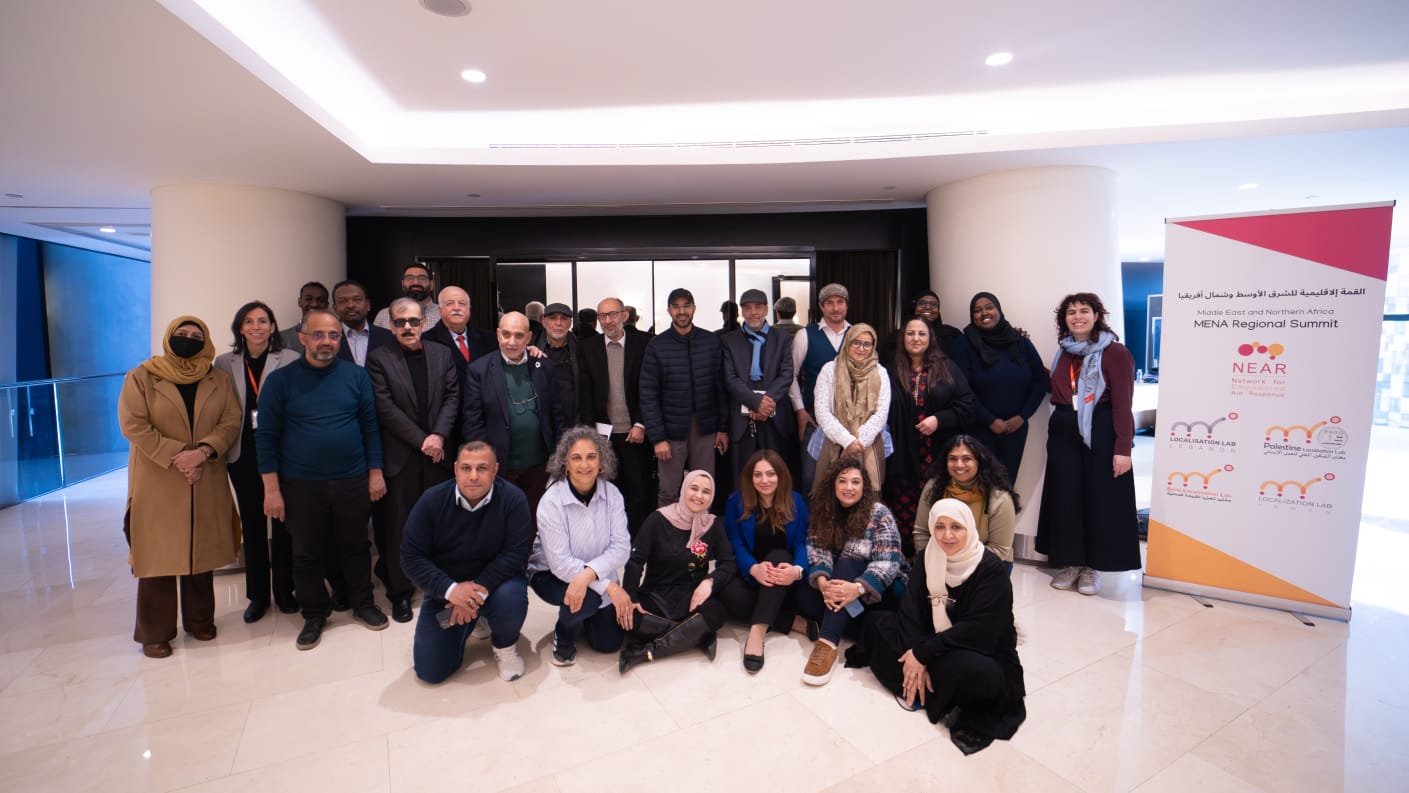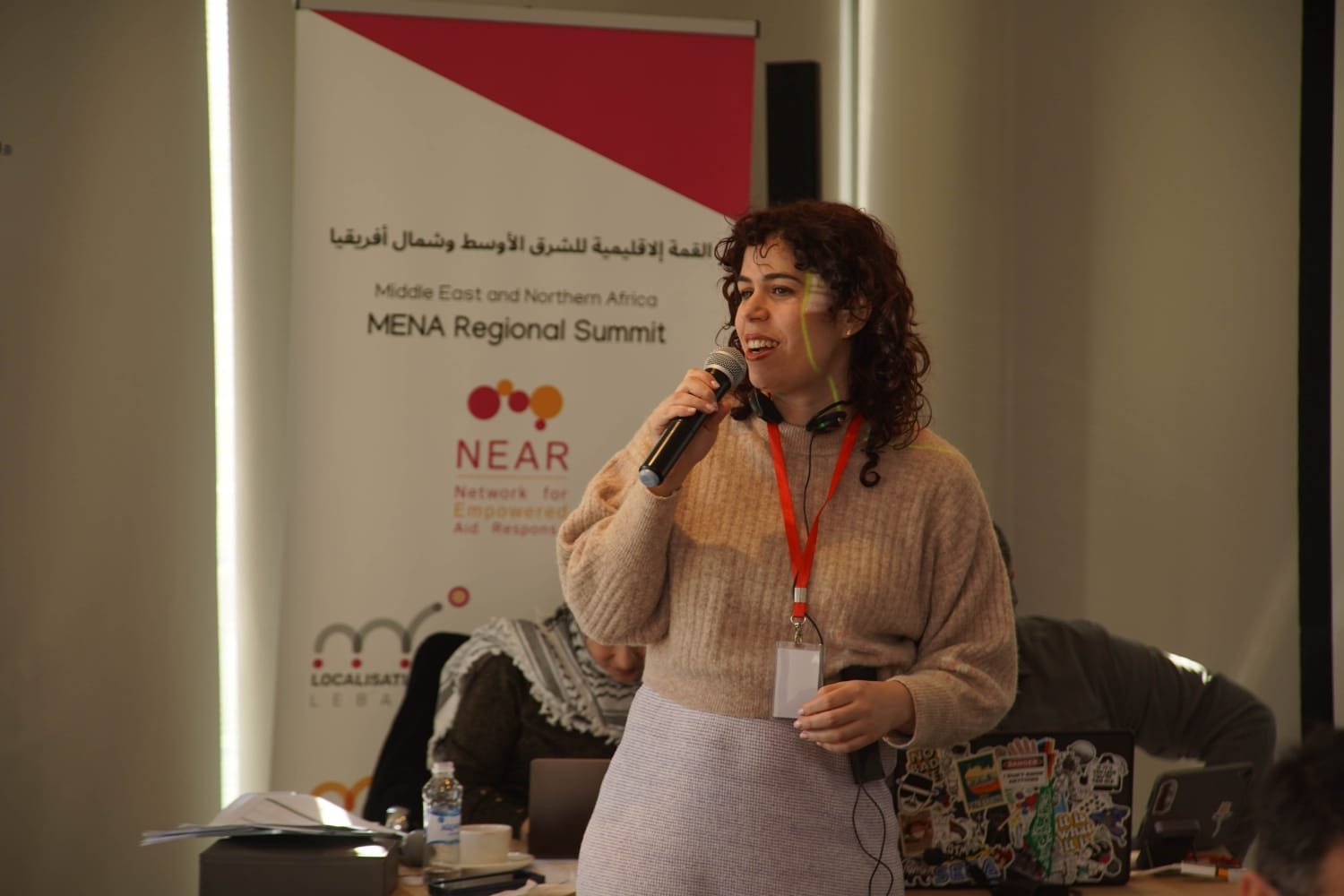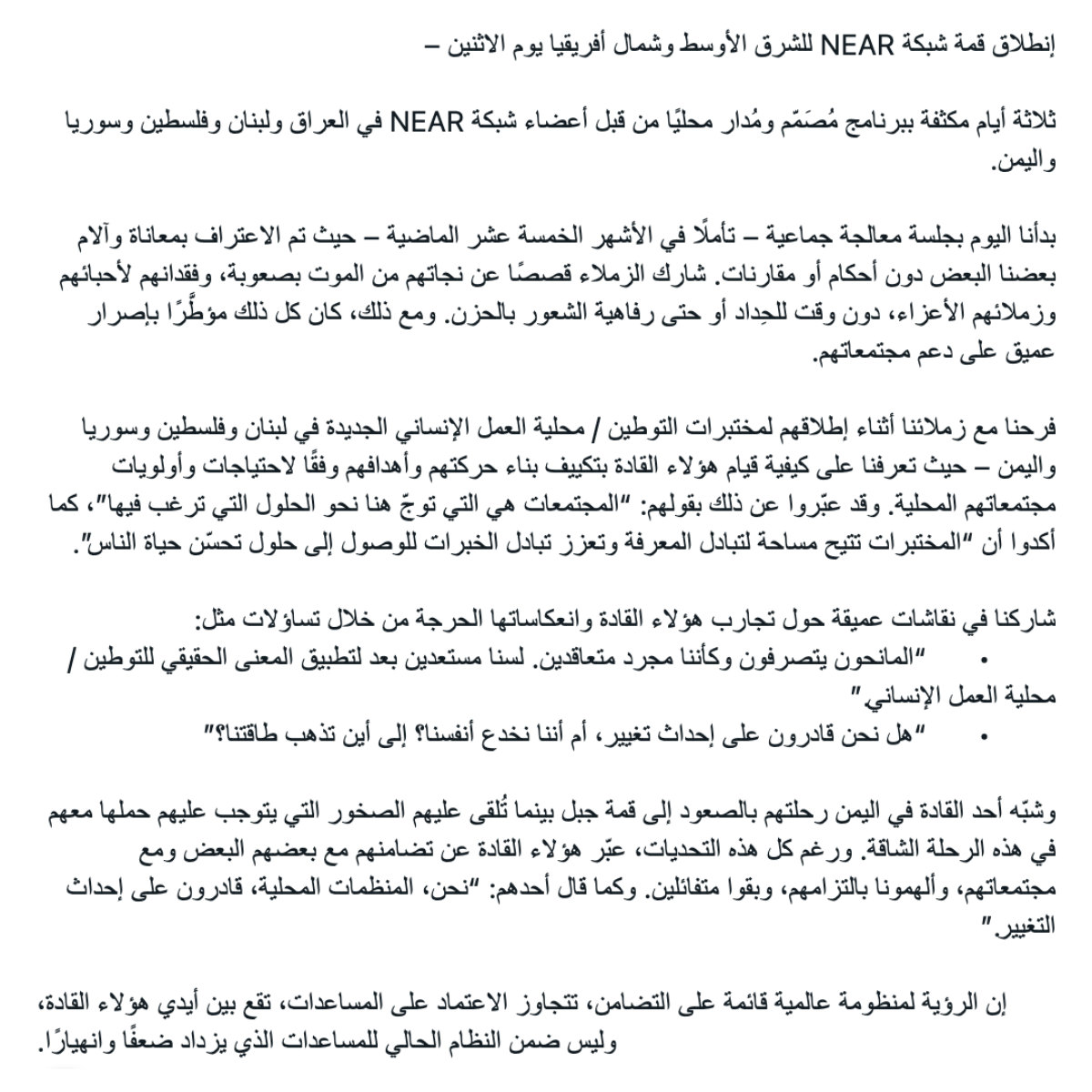by Vijayalakshmi Viswanathan
This blog is the first piece in a series that explores insights from an ongoing research process. NEAR’s Flagship Research Report which is slated for release in January 2026 looks at building a more locally-led aid system.
Stories matter. How we tell them and whose voices are centred in them matters. Understanding challenges from different perspectives matters. Learning from these when we discuss locally-led action matters.
For a long time, the dominant narrative has been the top-down localisation agenda. Much of this focus has understandably been around funding by donors, the UN and INGOs; and the ability of local organisations to mould themselves into ‘suitable partners’ in order to access those partnerships. The most generous angles have largely still been an exploitative view of local and national organisations as a ‘efficiency’, cost-cutting or risk transfer solution. While these conversations have evolved, the pace of change on the ground remains slow. The dominant narrative remains that of an international donor / agency and their empowered local partner(s).
In her 2009 Ted Talk, Nigerian author Chimamanda Ngozi Adiche talked about the dangers of a single story. “Power is the ability not just to tell the story of another person,” she said, “but to make it the definitive story of that person”.
We are at this critical juncture in the humanitarian sector, with increasing politicisation and reducing donor budgets competing with growing needs. Conversations around the future of aid are picking up pace. It is important that alternatives do not mimic the same one-story problem, replicating top-down systems just with new jargon, and losing the opportunity to learn from local leadership for system reform.
Part of this means understanding how locally-led action across the Global South is more than one story. It is the story of organisations coming together to advocate jointly for what localisation means in their contexts. And the story of a national organisation acting as an incubator for more grassroots innovations. And the story of navigating complicated dynamics as civic space closes. And the story of working across artificial silos because affected families don’t classify their problems as a humanitarian, development, climate, or peacebuilding issue. And the story of people losing their homes and loved ones, but as frontline responders having no space to grieve. And the story of taking the time to build trust with a community over endless cups of tea – only to worry about how to attribute those hours in a rigid logframe. And on and on.
For when we look beyond the viewpoint of the formal international aid architecture, we see the narratives are far more nuanced. Across the Global South, local and national organisations have always been finding ways to serve their communities, to innovate, to navigate their widely differing national realities, and even to build south-south solidarity.
Drawing on the vast expertise of NEAR’s membership, partners and the broader sector, we feel that it is important to bring together these threads. So over 2025, NEAR is delving more deeply into some of these questions by putting together a flagship report. Through this research, we aim to do more than an academic exercise, challenging the one-story perspective and amplifying diverse realities to help shape the system. How does locally-led action play out on the ground in different contexts, both within and beyond the gaze of the formal international system? What does south-south solidarity among local and national organisations look like and how is it evolving?
Over the coming months we will be exploring challenges, realities and hopeful solutions on building a more locally-led aid system from a Global South perspective. Watch this space for interesting insights through the process.
———
Vijayalakshmi Viswanathan is leading NEAR’s Flagship Research Report work. She has been a practitioner with national organisations in the Global South, working on locally-led action. She also brings extensive experience of leading on action research and learning studies for the humanitarian and development sector.
























